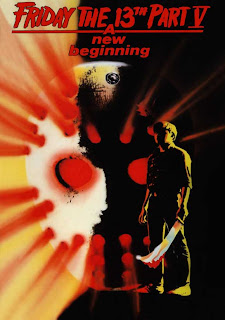Audiodrome #14 Coffy
While you’re there, why not pick up a copy of the latest issue of Paracinema Magazine? Inside you’ll find damn fine readin’ in the shape of articles and essays such as The Goriest Film You Never Saw by Jose Cruz, Marriage Bites: Lesbian Vampires and the Failure of Heterosexuality in Daughters of Darkness by Erin Wiegand and “When Single Shines the Triple Sun”: Duality and Self Discovery in The Dark Crystal by Paracinema’s very own editor-extraordinaire, Christine Makepeace.
The following article was published on Paracinema.net on 21st February 2013
Often overshadowed by the likes of Isaac Hayes’ score for Shaft and Curtis Mayfield’s Superfly, Coffy’s evocative score doesn’t receive as much recognition as it should.
The story of an African American nurse (played to ass-kickin’ perfection by Pam Grier), who turns vigilante on the inner city drug dealers who get her younger sister hooked on smack, Coffy isn’t your average exploitative B-movie; throughout the course of its gritty narrative it provides sly commentary on the damaging effects of drugs, prostitution and police/government corruption on black urban communities. Don’t get me wrong, while it demonstrates the extremes that already marginalised and desperate individuals will go to when they receive no help or recognition from wider society, it has some exploitative fun along the way (case in point: the fight scene in the brothel in which Grier stows razors in her hair to cut up her opponent). To label it solely as an exploitation movie isn’t doing it justice though. With a strong and resourceful female character – who isn’t averse to using her sexuality when she needs to – driving the story and an unapologetic anti-drug message at its core, the film made Grier into a genre icon and is now regarded as a blaxploitation classic.
It was easy for him because he really didn’t believe it was comin’, but it ain’t gonna be easy for you, because you better believe it’s comin’!
Born in Los Angeles in 1940, composer Roy Ayers hailed from a music-loving family – his mother and father played piano and trombone respectively – and he began playing piano at age five before moving on to steel guitar and his instrument of choice, the vibraphone. Prior to attending Los Angeles City College to study music theory, Ayers formed several jazz bands – including Jefferson Combo and the Latin Lyrics – and by the early sixties he had already ventured into the recording industry. Fusing funk, soul and jazz, Ayers recorded a number of critically and commercially successful albums before he was approached by Jack Hill to score his 1973 blaxploitation flick, Coffy.
Often overshadowed by the likes of Isaac Hayes’ score for Shaft and Curtis Mayfield’s Superfly, Coffy’s evocative and innovative score doesn’t receive nearly as much recognition as it should. Crafted around Ayers’ signature vibes, it boasts an atmospheric edge head and shoulders above its peers. The amalgamation of straight up funk, smooth soul and electric jazz creates a rich, lively texture, while imbuing the film with emotive depth. Ayers’s score was also used extensively by Quentin Tarantino throughout Jackie Brown.
The funky psychedelia of opener Coffy is the Color and Brawling Broads really showcase Ayers’ virtuoso vibes as he hammers out increasingly complex melodies. Similarly, Priscilla’s Theme, which, after a bosa-nova style opening with flutes and swooning bass, boasts some of Ayers’ most dizzying vibes and helps establish the scene for the funky delights to come. Elsewhere the smooth, laid-back groove of Shining Symbol features floaty, airy vibes and soulful vocals courtesy of Wayne Garfield, while infectious jazz melodies collide with funky riffs on Escape with its scurrying bongo beats, creepy baseline, barking brass and suspenseful pace. Surprises abound on Making Love and Vittroni’s Theme – King is Dead, with the inclusion of a harpsichord; accompanying lazy trumpets on the former, and providing the latter with an air of clandestine reverence. The shimmering Coffy Sauna, with its elated vocals, gives way to King’s Last Ride, another impossibly funky, guitar-snarling strut of a track, before the tempo is lowered on Coffy Baby, with its jazzy bass-line, dreamy vibes, string arrangements and sumptuous vocals courtesy of Denise Bridgewater. The distorted guitars on End of Sugarman conjure something a little more sinister, and eventually bring this gem of a soundtrack to a fitting close.
You want to spit on me and make me crawl? I’m gonna piss on your grave tomorrow.
As is usual when I fall for a score, I find it so difficult to select one track to include here. With a soundtrack like Coffy’s, this decision proved doubly difficult. I eventually opted for the spunky Aragon, which displays unexpected nuances amidst the catchy brass chorus with epileptic organ pieces, rumbling piano and guitar wah-wahs. Hopefully it will encourage you to seek out this album and listen to it in its entirety. You’ll be glad you did.



